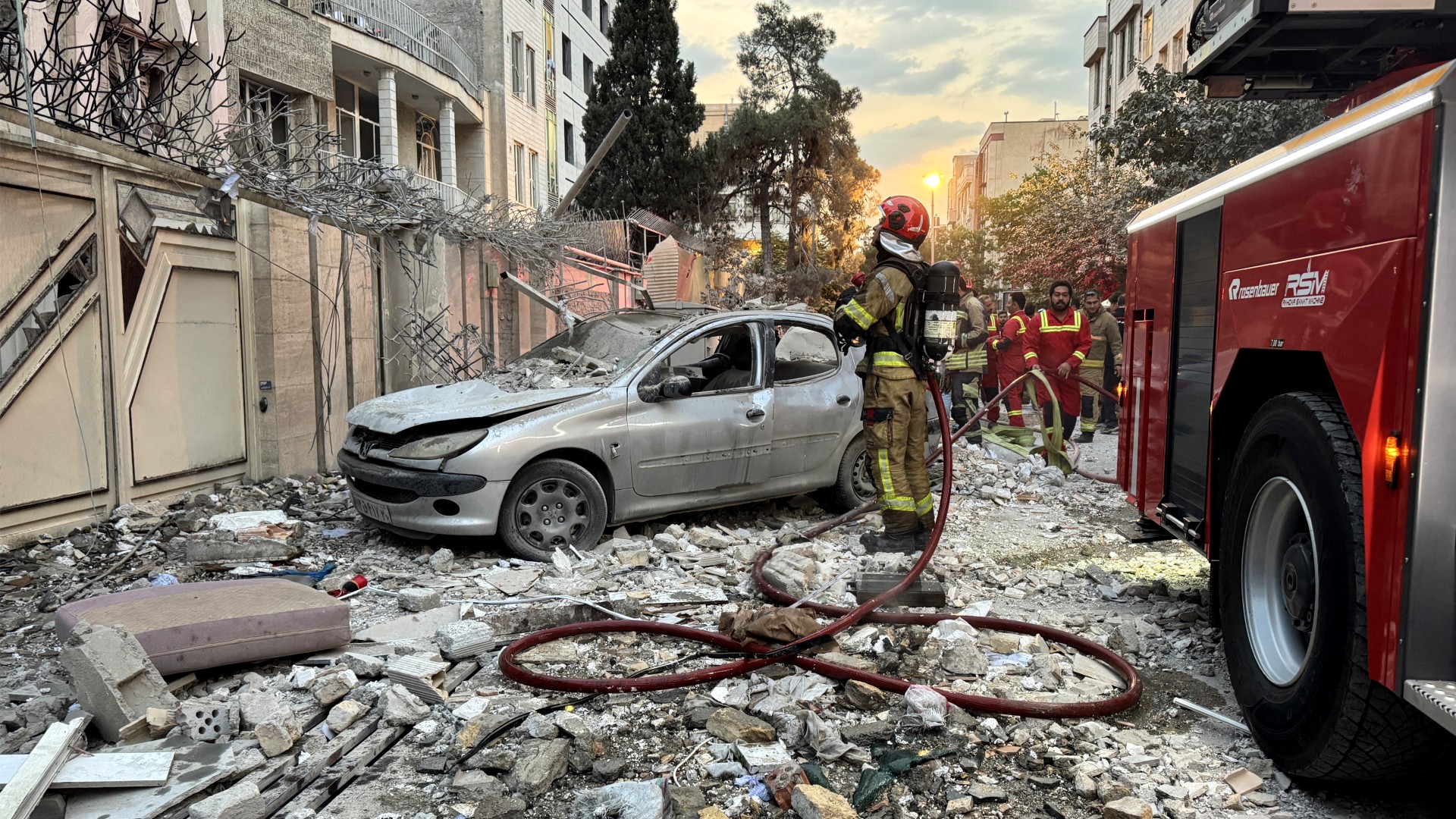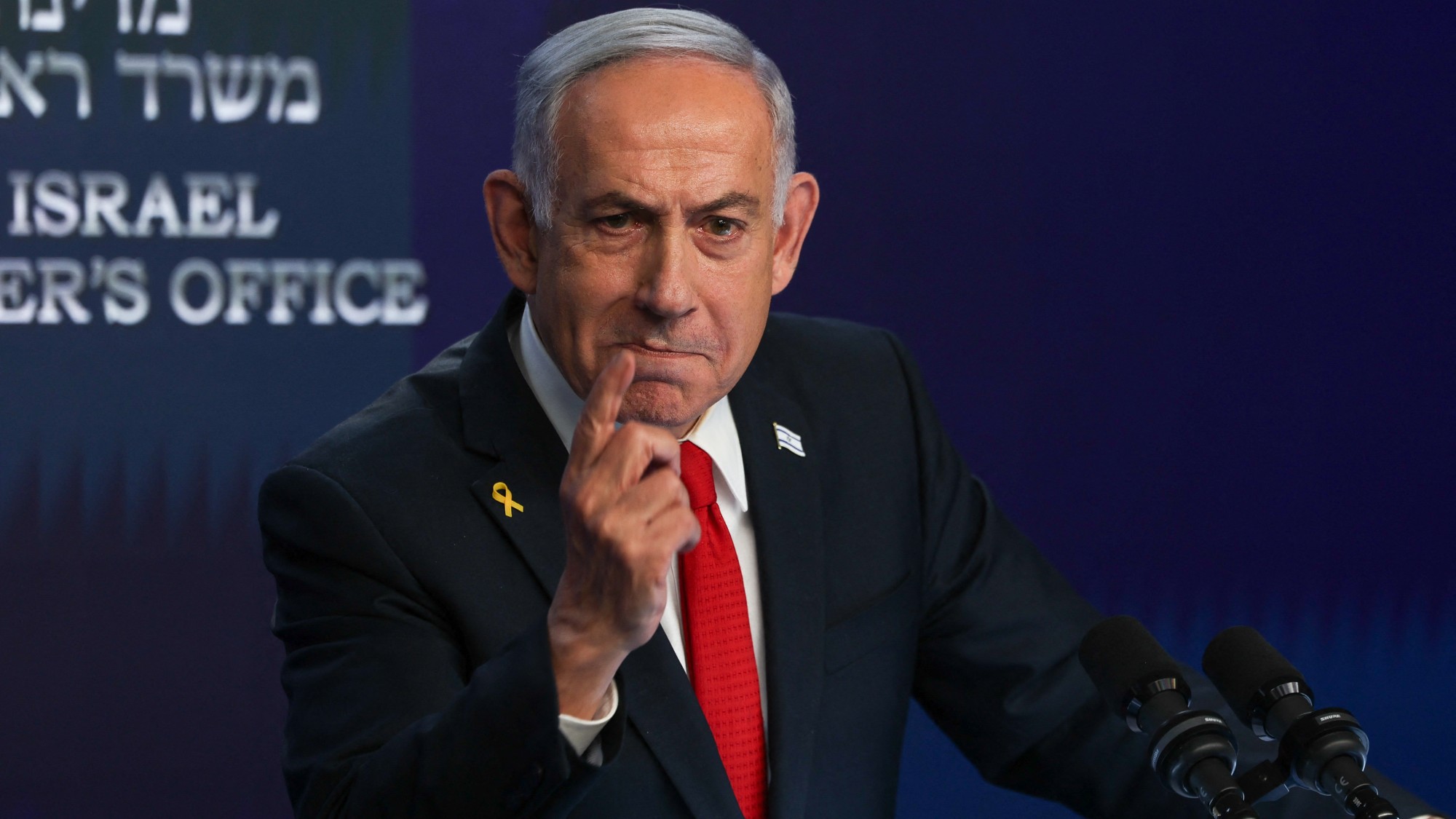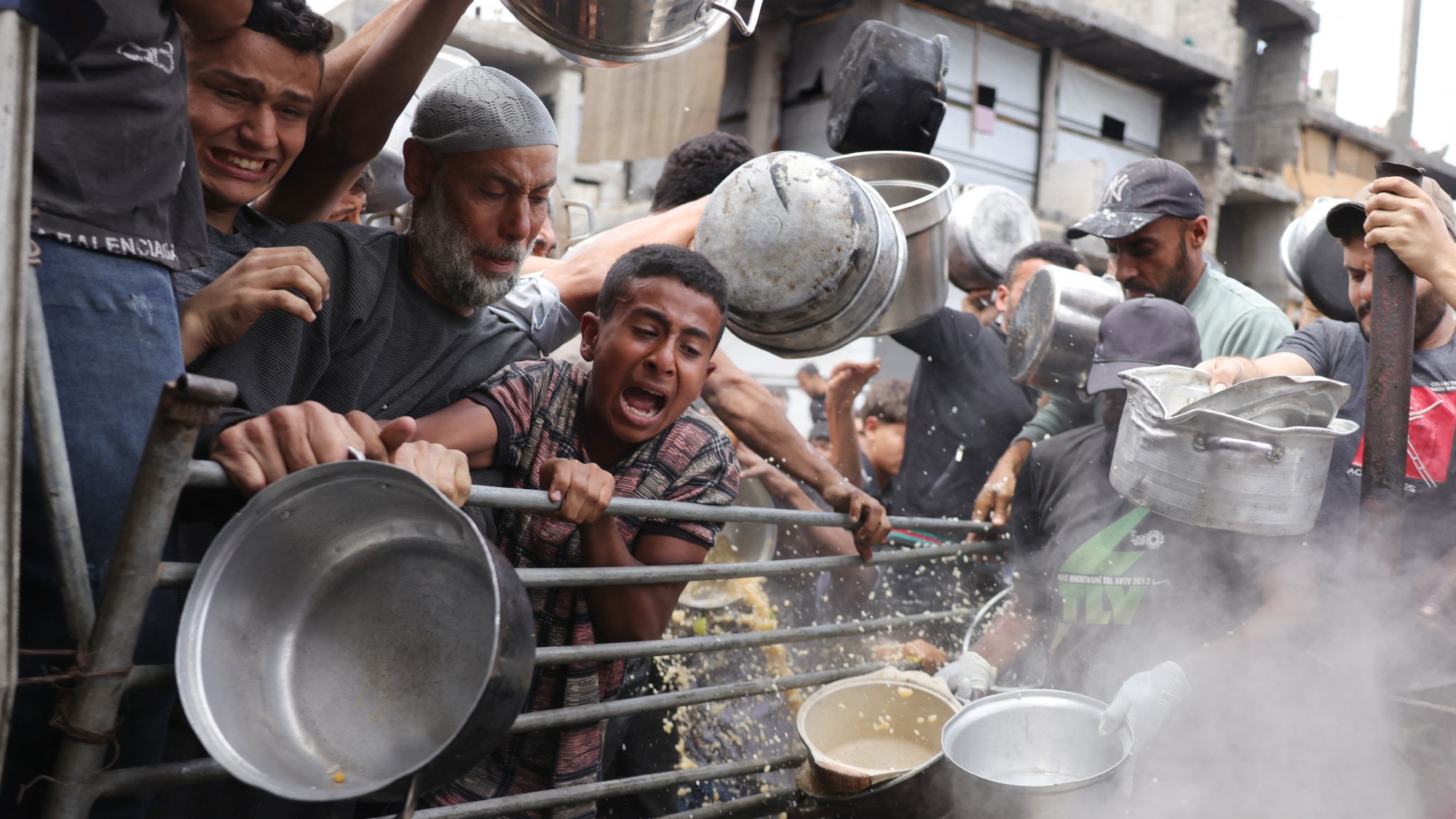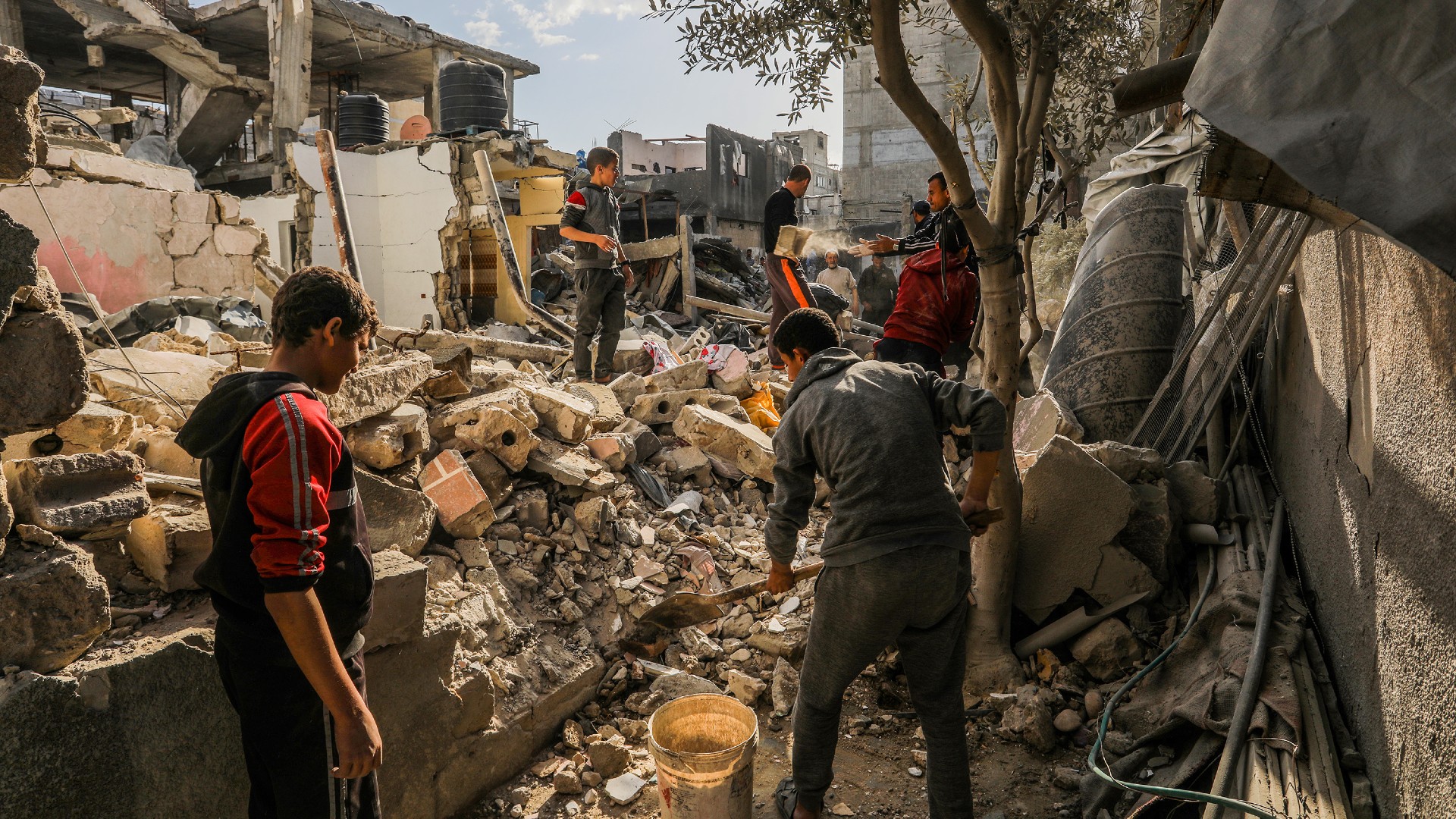How trustworthy are the Gaza Health Ministry's casualty numbers?
President Biden and other observers of the Israel-Hamas war are skeptical of the Hamas-run ministry's death toll. But those doubts may be unwarranted.


A free daily email with the biggest news stories of the day – and the best features from TheWeek.com
You are now subscribed
Your newsletter sign-up was successful
The Gaza Ministry of Health on Thursday evening released a list of 7,028 Palestinians killed since Israel started its heavy bombing of the besieged Gaza Strip on Oct. 7, in response to a vicious surprise attack on southern Israel by Hamas militants. The list included the names, ID numbers, ages and gender of 6,747 of the dead Gazans, including 2,665 children, but the ministry said it could not identify the other 281 due to the state of their remains.
The Israeli military said Thursday that "224 people were still believed to be held hostage by Hamas in Gaza," reported CBS News, though Hamas' military wing said "Israel had killed 50 of the hostages with its airstrikes on Gaza," a number included in the latest death toll.
More uncounted bodies were under the rubble of buildings, the Gaza Health Ministry said. And the rubble is everywhere, as CNN showed Thursday morning.
The Week
Escape your echo chamber. Get the facts behind the news, plus analysis from multiple perspectives.

Sign up for The Week's Free Newsletters
From our morning news briefing to a weekly Good News Newsletter, get the best of The Week delivered directly to your inbox.
From our morning news briefing to a weekly Good News Newsletter, get the best of The Week delivered directly to your inbox.

The health ministry, which has been releasing casualty numbers every few hours, did not say why it released the detailed list. But it "served as a sharp retort to President Biden's comments to reporters at the White House a day earlier, when he said that he had 'no confidence in the number that the Palestinians are using,'" The New York Times reported. Biden isn't the only one casting doubt on the Gaza health ministry's numbers, though, largely because the Gaza Health Ministry is run by Hamas, which has controlled the Gaza Strip since 2007.
What the commentators said
The Gaza casualty numbers come mostly from doctors who diligently count every body brought into struggling hospitals, then send the numbers on to the Health Ministry for tabulation, The Associated Press explained regarding the accuracy of the death count. And while Hamas exerts control over the ministry, it's partly funded and run by the Palestinian Authority in the West Bank — a key Hamas rival — and many of its civil servants predate Gaza's Hamas takeover. The United Nations and other international institutions and experts "say the Gaza ministry has long made a good-faith effort to account for the dead under the most difficult conditions," AP reported, and "in previous wars, the ministry's counts have held up to U.N. scrutiny, independent investigations and even Israel's tallies."
At the same time, the Gaza Health Ministry does not differentiate between civilian and militant deaths or say where the Palestinians were killed or how — all deaths are attributed to "Israeli aggression." And in one case — an explosion at a hospital that Hamas blamed on Israel but was more likely caused by a misfired Palestinian rocket — the ministry's casualty numbers are much higher than what Western intelligence agencies estimate. Still, nobody disputes that many civilians are dying from the bombs Israel says it has dropped on more than 7,000 targets. "This week, almost two-thirds of the casualties from Israeli strikes occurred in the southern part" of the Gaza Strip, where Israel urged civilians to relocate for their own safety, The Washington Post reported Thursday, citing the Gaza Health Ministry.

What next?
No one is really challenging Israel's casualty numbers — it counts about 1,400 dead from Hamas attacks, including 309 soldiers — but like Gaza's Health Ministry, Tel Aviv is trying to combat skepticism about the war's brutal toll on civilians. On Monday, Israel's military showed journalists 43 minutes of raw footage of atrocities committed by the Hamas fighters on Israeli civilians two weeks earlier, taken largely from the GoPro cameras the raiding militants wore to document their acts of barbarity. The decision to screen the footage, BBC reported, "reflected an apparent frustration among senior ranks of the Israeli military that the media coverage of Hamas' brutal attack" had "given way to coverage of Israel's airstrikes against Gaza and the humanitarian crisis created by Israel's order for Gazans to migrate south."
A free daily email with the biggest news stories of the day – and the best features from TheWeek.com
Peter has worked as a news and culture writer and editor at The Week since the site's launch in 2008. He covers politics, world affairs, religion and cultural currents. His journalism career began as a copy editor at a financial newswire and has included editorial positions at The New York Times Magazine, Facts on File, and Oregon State University.
-
 Local elections 2026: where are they and who is expected to win?
Local elections 2026: where are they and who is expected to win?The Explainer Labour is braced for heavy losses and U-turn on postponing some council elections hasn’t helped the party’s prospects
-
 6 of the world’s most accessible destinations
6 of the world’s most accessible destinationsThe Week Recommends Experience all of Berlin, Singapore and Sydney
-
 How the FCC’s ‘equal time’ rule works
How the FCC’s ‘equal time’ rule worksIn the Spotlight The law is at the heart of the Colbert-CBS conflict
-
 How long can Nato keep Donald Trump happy?
How long can Nato keep Donald Trump happy?Today's Big Question Military alliance pulls out all the stops to woo US president on his peacemaker victory lap
-
 How far would Russia go for Iran?
How far would Russia go for Iran?Today's Big Question US air strikes represent an 'embarrassment, provocation and opportunity' all rolled into one for Vladimir Putin
-
 How the Israel-Iran conflict broke out
How the Israel-Iran conflict broke outThe Explainer Israel's strike on Iran's nuclear and missile programmes was years in the planning
-
 Will the UK get involved in the Israel-Iran conflict?
Will the UK get involved in the Israel-Iran conflict?Today's Big Question Keir Starmer is 'walking a tightrope' in helping Israel limit Tehran's nuclear capabilities without being seen to do so
-
 What happens if Israel attacks Iran?
What happens if Israel attacks Iran?TODAY'S BIG QUESTION Israel is 'ready to strike' and Tehran has plans for counterattacks against the US as nuclear talks appear deadlocked
-
 Is Israel finally feeling the heat on Gaza?
Is Israel finally feeling the heat on Gaza?Today's Big Question Benjamin Netanyahu allows aid to resume amid mounting international pressure and growing internal turmoil
-
 Israeli air strikes in Gaza: why has ceasefire collapsed?
Israeli air strikes in Gaza: why has ceasefire collapsed?Today's Big Question Start of 'broader and more sustained military operation' denounced by domestic groups representing hostage families
-
 Is Gaza ceasefire deal about to fizzle out?
Is Gaza ceasefire deal about to fizzle out?Today's Big Question Israel and Hamas accuse each other of deliberately breaking first phase of the fragile truce, which is set to expire on Saturday
